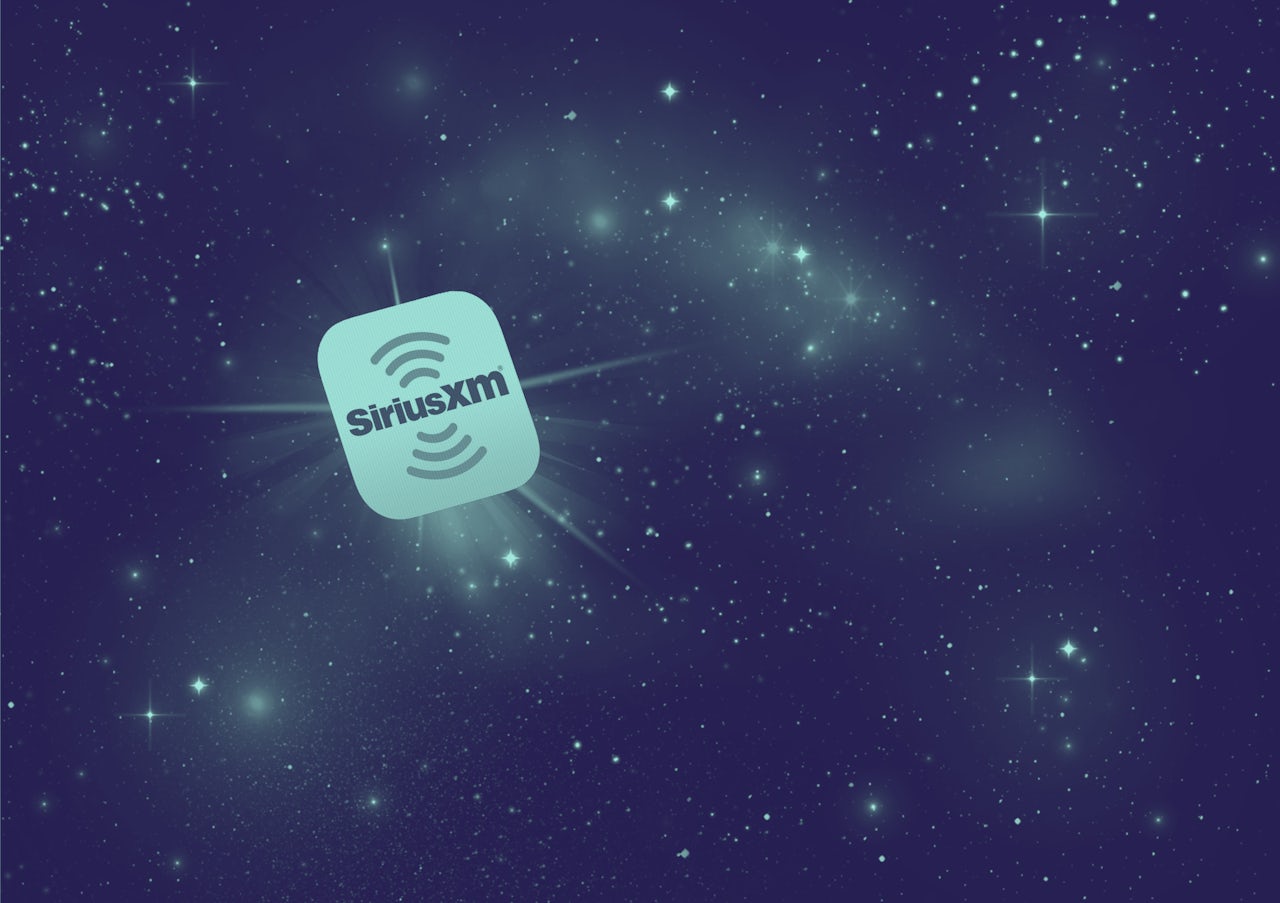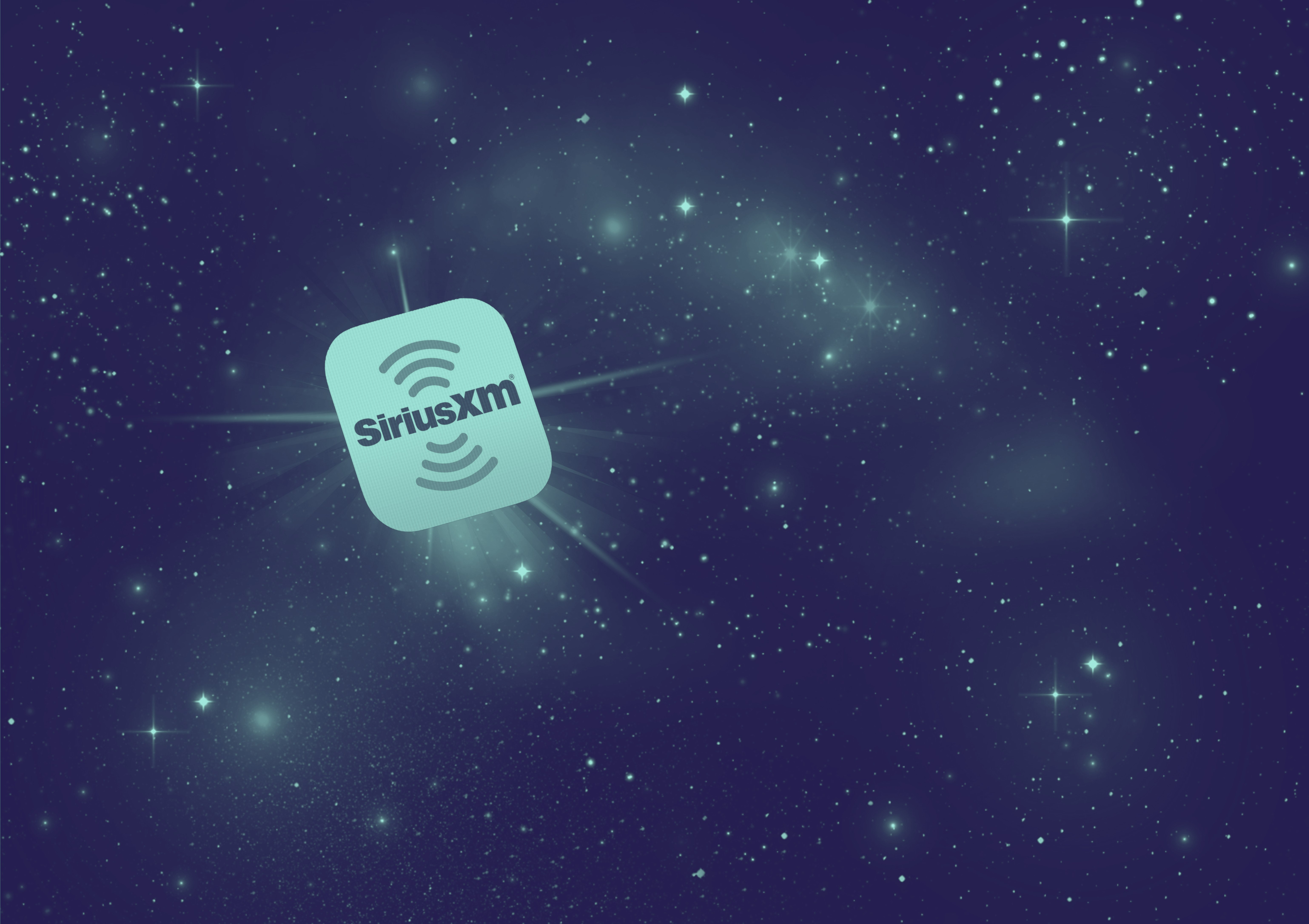but this place is just right.
I recently bought a car. It was a lot of stress and I can’t really recommend it. But anyway, right after I bought this car, I was informed by the salesman that I had the option to subscribe to a free three-month trial of Sirius XM. While I had no interest in satellite radio, I also didn’t have to give Sirius XM my credit-card information, so I said to hell with it and took the free trial. If you disregard my advice and decide to buy a car and then find yourself in this situation, I cannot stress this enough: Take. The. Free. Trial. Of. Sirius. XM.
I have now had the car for a month, and allow me to say, Sirius XM kind of completely rules. And by that, I mean it’s a weirdly outdated technology that offers weirdly niche channels appealing to a number of hyper-specific demographic groups who someone in an office once believed spent a lot of time in their cars, and overall it’s just really really really really deeply weird. It goes without saying that I will be providing Sirius XM with my credit card information and letting them charge me $15 a month until I die.
There is something unique about radio as a format. It’s a medium whose primary draw is its intimacy, both temporal and attitudinal — even if the music a given station is playing is the exact same crap you’d hear no matter where you are in the country, the fact that a DJ near you is playing it, live, for your benefit, feels special. You usually listen to it alone in your car, but the fact that DJs as well as talk radio hosts periodically open up the phone lines so that you — yes, you! — can hypothetically call in and beam your voice into the cars of thousands of other isolated people without those same people being able to immediately tell you how much they hate you provides the sort of controlled, lightly atomized sense of connectivity that is far too absent on, say, the internet.
The only problem is that most of the music sucks and the only talk-y things to listen to are NPR (boring), D.L. Hughley’s radio show (pretty good!), right-wing talk radio (not boring, very racist), and, on Sundays, sermons (usually not boring, but usually telling you you’re going to Hell). Satellite radio ameliorates terrestrial radio’s frequently crippling lack of choice, doing its damnedest to get around the fact that it can’t foster intimacy through its regional specificity by starting with the premise that yes, there is something for everybody, and then postulating that if you offer a bunch of hyper-specific somethings for a preponderance of individual someones, you will reach an amount of someones who, taken in aggregate, add up to nearly everyone.
Flipping around Sirius XM’s channels — 151 in total — can feel like wandering through a flea market full of specialty vendors crossed with a public access TV fever dream. Everyone from Willie Nelson to LL Cool J to The Tragically Hip to Jimmy Buffett to Kenny Chesney have their own curated channels (playing classic country, golden-age hip-hop, Canadian stuff, Jimmy Buffett-style country, and slightly twangier Jimmy Buffett-style country, respectively), and there are stations for reggae deep cuts (The Joint), disco and proto-house (Studio 54 Radio), Canadian indie-pop (Influence Franco), yacht rock (Yacht Rock Radio), and sloppy country (Red White and Booze).
In the talk radio department, there are channels from all the major news networks, plus a buttload of more bespoke stations catering to any number of extremely carbound interest groups. There are stations for Catholics (The Catholic Channel), Mormons (BYU Radio), farmers (Rural Radio), guys who are into generic “guy stuff” (Faction Talk), hypochondriacs (Doctor Radio), and fans of bad stand-up comedy made worse by not being able to see the comedian’s body (there’s like five of them). There is an incredible channel for truckers called Road Dog Trucking (not to be confused with Mad Dog Sports Radio, which is about sports); when I gave it a listen over the weekend, a man who sounded like a trucker was telling a man who also sounded like a trucker that it was really hard to be a trucker these days because all of their jobs were going to get automated out of existence.
Terrestrial talk radio is overwhelmingly dominated by conservatives trying to scare old people into voting Republican, and you might assume that Sirius XM would offer programming that was similar but somehow much worse. You would be right. Instead of the bioviations of Rush Limbaugh and Glenn Beck, there’s Sirius XM Patriot, which features the second tier of the conservative commentariat, who as a rule make up for their inability to entertain by being way more right-wing than even regular conservative talk radio. These peoples’ names are not worth mentioning, but The Outline’s Alex Nichols has done admirable work examining the very stinky universe from which they hail. Additionally, each weekday, Sirius XM Patriot also gives Breitbart, yes that Breitbart, six hours to do news stuff with, which I refuse to even sample for the sake of journalism but assume is just thinly-veiled Nazi propaganda. It used to be hosted by Steve Bannon, which is really all you need to know.
Given that Sirius XM will give a station to literally anyone, you’d assume that there would be some sort of equally batshit left-wing analog to the Patriot channel, presumably consisting of a combination of crusty old American Maoists yapping about the need for unions in industries that no longer exist, news dispatches from Democracy Now, plus a couple Chapo Trap House ripoffs. But alas, while Sirius XM does offer a channel that serves as an ideological foil to Patriot, the company’s programmers did not go the proverbial Full Commie™ on “the haters,” and instead served up Sirius XM Progress. To get a sense of the Sirius XM Progress vibe, reach back into the forgotten chambers of your mind for the distant memory of Air America, the now-defunct talk radio network that was on the air from 2004 until 2010. Though Air America died an ignoble death, largely from financial mismanagement, but also because liberals tend to get their news and political fix from places other than radio. But progressive programming like the station’s shows Affirmative Reaction and Signal Boost won’t have an impact, anyway. If there is any hope that satellite radio will radicalize the American worker, it’s going to be from something like the trucker channel’s dooming and glooming about impending robot truck drivers.
In essence, the idea behind Sirius’s slate of channels is that there are people out there who like things enough to pay $15 a month to have access to it. In other words, it’s like signing up for cable TV to get HBO and a bunch of extra stuff you don’t care about, but for your car. This makes sense when you consider Sirius XM’s history, when it used to be two competing companies respectively called Sirius and XM Radio, and Sirius gobbled up XM’s market share by luring Howard Stern to their platform and absolutely dominating the coveted “18-to-35-year-old guys who jack off a lot and are proud of it” demographic, thereby giving it the power to buy XM Radio and probably contractually force XM’s former CEO into going into the Stern studio wearing the man-thong from Borat.
I still remember when my dad, a longtime gadget buff, got an XM Radio receiver for his PT Cruiser. It was the early days of satellite radio, before the Great Recession, before the internet was hyper-fast, before cell phones even had cameras on them, back when technology was really advanced in specific fields but had not yet been synthesized into affordable catch-all “smart devices.” In order to get our new XM beamed into his car, he had to order an entirely different antenna, as well as a separate radio dial that I’m almost certain suctioned onto his car’s windshield. It was amazing. Not only could we listen to music that wasn’t on the regular radio, we could listen to that music as it got BEAMED INTO A CAR from OUTER SPACE.
In the time between my dad getting satellite radio in the early 2000s and me getting it in the late 2010s, satellite radio got better. But everything else got better, too, including cell phones and cars, to the point that satellite radio capability is often built into new cars but never used because those new cars also seamlessly hook up to your phone, which has access to way more music, podcasts, and audio oddities than satellite radio could ever hope to offer. Those little proprietary satellite radio receivers have largely disappeared in favor of catch-all iPad-type thingies in a car’s center console, disgustingly referred to as “infotainment screens.”
All this has translated into some hard times for Sirius XM’s business. The company’s stock currently trades at around $6.39, which is somewhat lower than its February 2000 peak of over $59 a share. Despite its low stock price, Sirius is perennially on the radar of Wall Street analysts, some of whom remain bullish on the company’s prospect of future profits. After all, cars have had built-in Sirius receivers for years now, meaning that millions of affordable used cars like my own are being purchased with satellite radio capability and that the company is constantly earning potential new customers.
Personally, I highly doubt that there are enough people out there like me, who love listening to live hip-hop mixes and are down to occasionally turn into the farmer channel for kicks and therefore are hypothetically interested in signing up for Sirius XM after their free trial expires, to keep help the company prevent its subscriber base from shrinking. And yet! This is basically the large chunk of the company’s business model, as evidenced by a passage in this quarterly SEC filing that straight-up states, “Sales of used vehicles represent a significant source of new subscribers for our satellite radio service,” before lamenting that these customers “may [be] of more limited economic means.” So, Sirius is certainly aware that used cars will not save them — after all, why would you subscribe to a streaming service for your phone and then subscribe for another streaming service after you buy a car? But if apps are eating into Sirius’s bottom line, then an app they shall become — last year, the company acquired Pandora, which is admittedly a pretty crappy streaming service, but it has the advantage of not being directly associated with car ownership. This is not Sirius XM’s only attempt at expansion, however. In a coup for Boat Guys everywhere, Sirius XM and Garmin now offer something called a “Fish Mapping Service,” which according to a press release uses “machine learning” to do stuff like figure out which parts of the ocean are what temperature and how much plankton they possess, and then beam it to the Garmin GPS on your boat to help you fish good. It costs $99 a month.
Sirius XM is a fundamentally weird service, one with a lot of content that seems very clearly tailored to Kenny Powers-type dudes who drive $80,000 pickup trucks and also want to murder fish. But there’s something magical about the fact that you can turn on the radio — AM, FM, or satellite — and find humans stringing songs together with intention behind every transition. On my favorite Sirius channel, the Eminem-affiliated underground hip-hop station with the unfortunate name of Shade 45, you can hear someone like the New York producer/DJ Scram Jones play an entire mix where he plays an old track, flip a sample in real time, and then play a rap song that uses that sample. Other shows on the station give DJs in places like Atlanta and New Orleans a platform to put on new talent in their city, regardless of whether they’re signed by a major label or racking up streams on Spotify. You can’t get that from a streaming service, which will attempt to algorithmically intuit what you might like based on what you’ve listened to in the past.
This might not seem like a big deal to carless city dwellers, whose public transit time affords them the ability to seek out similar stuff on blogs, SoundCloud, or mix sites, but when you’re operating a motor vehicle and could kill someone or yourself at literally any moment, it’s nice to be able to outsource some of the labor associated with curation to a trustworthy third party. Multiply this by several dozen factors and throw in a bunch of insane talk radio channels, and that’s the appeal of Sirius. It taps into the ancient human desire to go channel surfing, and to encounter the unexpected and occasionally sublime. The act of discovering Sirius itself replicates this process. I found it by turning on my new car, starting cycling through all the different ways it could play music, landed on Sirius, and before I knew it, I was hooked.











